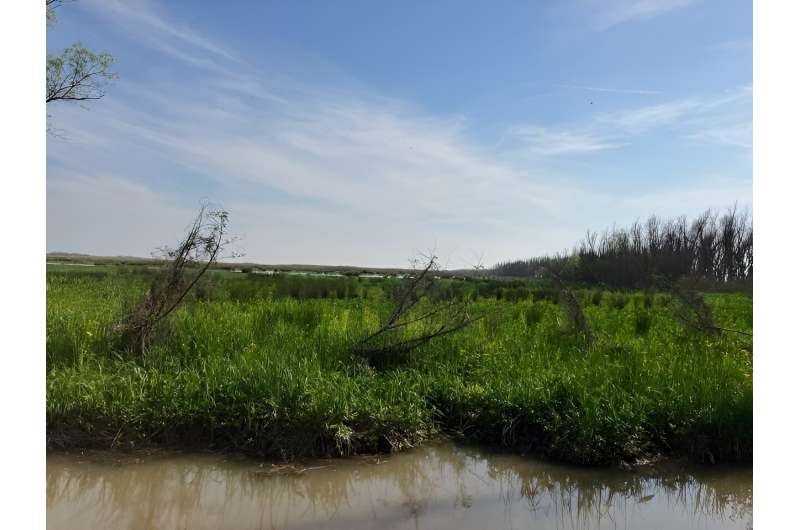Coastal chemistry improves methane modeling
Scientists at Oak Ridge National Laboratory are using a new modeling framework in conjunction with data collected from marshes in the Mississippi Delta to improve predictions of climate-warming methane and nitrous oxide emissions from soils in coastal ecosystems. Their work has been published in Journal of Advances in Modeling Earth Systems.
Underlying processes such as sulfur cycling and influences like salinity in these waterlogged wetland soils drive how quickly organic matter is broken down and how much is converted into methane, a gas 28 times more potent than carbon dioxide at warming the atmosphere.
“We developed this chemical reaction framework that includes a lot of different reactions,” said ORNL researcher Benjamin Sulman. “This model established that methane fluxes from bubbles are highly variable and account for a large fraction of total fluctuations.”
Incorporating these biogeochemical processes into the land module of the DOE Energy Exascale Earth System Model will depict global methane fluctuations more accurately.
More information:
Jiaze Wang et al, Subsurface Redox Interactions Regulate Ebullitive Methane Flux in Heterogeneous Mississippi River Deltaic Wetland, Journal of Advances in Modeling Earth Systems (2024). DOI: 10.1029/2023MS003762
Citation:
Coastal chemistry improves methane modeling (2024, January 26)
retrieved 26 January 2024
from https://phys.org/news/2024-01-coastal-chemistry-methane.html
This document is subject to copyright. Apart from any fair dealing for the purpose of private study or research, no
part may be reproduced without the written permission. The content is provided for information purposes only.

Scientists at Oak Ridge National Laboratory are using a new modeling framework in conjunction with data collected from marshes in the Mississippi Delta to improve predictions of climate-warming methane and nitrous oxide emissions from soils in coastal ecosystems. Their work has been published in Journal of Advances in Modeling Earth Systems.
Underlying processes such as sulfur cycling and influences like salinity in these waterlogged wetland soils drive how quickly organic matter is broken down and how much is converted into methane, a gas 28 times more potent than carbon dioxide at warming the atmosphere.
“We developed this chemical reaction framework that includes a lot of different reactions,” said ORNL researcher Benjamin Sulman. “This model established that methane fluxes from bubbles are highly variable and account for a large fraction of total fluctuations.”
Incorporating these biogeochemical processes into the land module of the DOE Energy Exascale Earth System Model will depict global methane fluctuations more accurately.
More information:
Jiaze Wang et al, Subsurface Redox Interactions Regulate Ebullitive Methane Flux in Heterogeneous Mississippi River Deltaic Wetland, Journal of Advances in Modeling Earth Systems (2024). DOI: 10.1029/2023MS003762
Citation:
Coastal chemistry improves methane modeling (2024, January 26)
retrieved 26 January 2024
from https://phys.org/news/2024-01-coastal-chemistry-methane.html
This document is subject to copyright. Apart from any fair dealing for the purpose of private study or research, no
part may be reproduced without the written permission. The content is provided for information purposes only.
